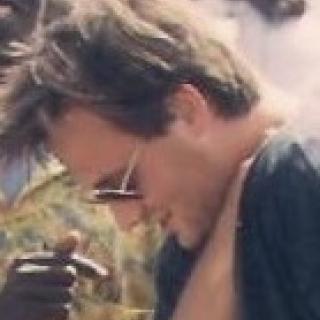In 1991 Somalia, already ravaged by years of internal conflict in the north-west, was engulfed by a new wave of extreme violence. The fighting between government forces and several allied opposition movements, which had reached the capital in December 1990, resulted in the overthrow of President Siad Barre in January 1991. However, rival factions in the centre and south of the country continued to battle each other. The indiscipline of the combatants and the total lack of respect for the most elementary rules of war took a heavy toll on the civilian population: tens of thousands died, and hundreds of thousands were displaced or became refugees. The chronic instability and violence made the ICRC’s humanitarian mission in Somalia extremely dangerous. Several times we were forced to withdraw our teams for their own safety: early in January, when fighting was raging in Mogadishu, expatriate and local staff were evacuated to Djibouti. We were able to return to the capital in late February.
The fighting completely disrupted postal and telephone services. The ICRC set up a network for the exchange of messages between separated relatives and for tracing missing people. Ten offices were opened on Somali territory, plus one in Djibouti and two others in Somali refugee camps in Kenya. The service covered many other countries with large Somali communities, including Saudi Arabia, Canada, Italy, the Scandinavian countries and the United Kingdom. More than 22,500 messages were forwarded in 1991, compared with 1,400 in 1990.
Despite the major difficulties involved, especially in Mogadishu, the ICRC continued to assist civilian victims of the conflict. Starting in February, we organized regular relief shipments between the ports of Djibouti and Mombasa (Kenya) and the Somali coast. In all, over 22,400 tonnes of food and other aid were distributed in Somalia in 1991. As the situation deteriorated, organizing relief operations became more and more difficult: at times ships could not approach the coast; weeks passed before food could be unloaded; warehouses were constantly pillaged and vehicles stolen; and various problems arose after aid had been distributed. In these circumstances, the ICRC decided to involve the traditional authorities – clan chiefs – in the distribution process. Wim was attending such a meeting when he was shot.
Throughout the year, with fighting raging in one part of the country or another, the hospitals in Mogadishu, Berbera and Kismayo were overwhelmed by a flood of war casualties. In Mogadishu, the capacity of the Martini Hospital (which also housed the ICRC delegation) was increased from 100 to 200, and then to 300 patients. Following the savage fighting in November, which split the capital into northern and southern sectors and resulted in tens of thousands of wounded, two surgical teams seconded from the Finnish and the Netherlands Red Cross Societies worked on either side of the frontline. However, they had to be withdrawn in December because of the increasingly dangerous conditions. In 1991 the ICRC was the only humanitarian organization with teams in all parts of Somalia.
